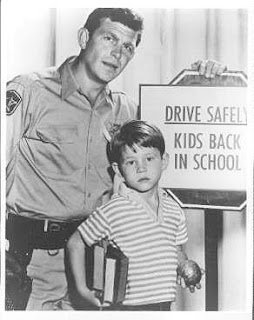Vicious Circles: Rejected Bit from Beautiful Morning Blues
There are October mornings in The Woodlands when the watery Mid-Atlantic sky still burns with a white-hot sun even though summer is long gone. Clouds explode in smoking bursts, stilled just slightly by the strange heat of the autumn stratosphere. Crows and pigeons bob on the wind, but The Woodland’s Gap store advertises sales, and the weekend street fills up with SUVs and Audi station wagons stuffed with families on the way to football and soccer games. Waitresses go one more button down on their blouses and bend just a bit more across tables.
During the week divorcee mothers tow their small children in new red wagons down to parks, take off their shoes, wonder if they should feel happy to be free from marriage, put the little ones down for their naps, yearn for a tryst with the renter next door who sits reading on his porch, drinking a daiquiri in the sun. The youngest of the divorcees are usually the most feral. They roam the streets all day in Grand Cherokees, Escalades, Navigators, Suburbans, doing errands and transporting their kids to and from schools with names like Williams Prep, The Woodlands Academy, and Cliveden Friends Select in that doting white-anglo-saxon-protestant way that only plentifully breasted, patrician faced, rich women can, waiting for their attorneys to call them. Delicate bone structures, big, blue cat’s eyes, full mouths, white teeth, long legs, educated rears, narrow salad-eating waists, luxurious hips, well-adjusted minds from the utopias of Vassar, Wellesley, Georgetown, Duke, and Sarah Lawrence.
Sometimes they aren’t divorced at all. They’re just unhappy, or searching, or needy and have lost their husbands to making the making of money and the games of rich males – racquet sports, golf, hunting, biking, fishing. The vectors of desire change direction slowly but steadily in the land of the rich and couples move into different sets of desire. Women all over in The Woodlands can be just as much on the prowl as men, emotions roaming through them in vicious circles, vectors of desire spinning out of control.
It happens sometimes. They make the lone male shopping in the grocery store at lunchtime happy while his colleagues back at the office read memos and talk long-distance to Taiwan; they coat his body with theirs, pump against his thigh, walk across his living room, blooming, even after two kids and a misfired marriage, smelling sweet as a new car, willing to do the unthinkable, taking a risk and dominating the moment just enough to gather the strength to force the now AWOL businessman lying naked on his back, to provide oral pleasure, his face cocooned by her thighs until he has done what she wants of him. She reminds him of his ex-wife, but she is also someone new, so he gets her to kneel or lie on her back and finally attaches himself looking into her blue cat’s eyes and thinks about his wife as he vaults on top in spasms of brief lunacy, knowing as soon as he is done that she is not his wife and he has made a mistake. He is still married, he wants to divulge, but he never spends any real time with his wife anymore and isn’t sure she even loves him. This intimacy is too much, however, and he remains silent about his despair. They make plans for the following Monday and she gives him a quick nip on the neck then lets herself out through the back door.
This is what happens when people are confronted with the inevitable loneliness of living in a hot city during the school year just before the weather turns and the north wind raises its violent head in celebration of winter. There are more than 28,000 people in The Woodlands. On good-weather weekdays, people shop, eat lunch at outdoor cafes, and ogle each other’s flesh. On bad days, when the rain jets out of the sky horizontally and stings the face, people think about sex and murder and watch TV, or masturbate while they surf Internet porn sites.
He is not thinking about murder, but he has been going over the mechanics of the device for the past hour, contemplating the physics of an explosion. He has the suitcase, the battery, the cell phone he lifted from a grandmother at a supermarket he drove to in West Virginia, a small roll of fourteen-gauge wire, the relay, the traveler’s alarm clock, four strips of blasting cord, thirty-three pounds of Cemtex in fifteen light-yellow, sausage-shaped rolls, and the clothes he purchased at Old Navy and The Gap to hide and pack the assembly. He will take the train to the North Philadelphia station carrying the suitcase full of these components, walk two blocks to the van he has rented with a stolen credit card, then make the twenty minute drive to 30th Street Station. In the parking lot under the building he will climb in the back and, shielded by tinted windows, arm the device. His wife and son think he is flying to St. Louis.
He will sit on the bench nearest the information desk in the center of the station for half-an-hour then walk out the West exit to have a smoke. In the van, as he merges with traffic onto the Schuylkill Expressway, he will dial the special number they gave him for the cell phone. The alarm on the clock will switch on. Ten minutes later the explosion will have killed several hundred people. The suitcase will have been left strategically near the large wooden benches so that they act like giant shrapnel in the blast, huge chunks of one hundred year old timber and iron slicing through the air with the same velocity as the chemical reaction.
There is no such thing as murder when there is a war like this, he thinks. The United States do not understand what they are up against. It is no longer about nations and territory. It is not about principles or morality. It isn’t even about ideology or politics. It is what happens after millions of conversations and arguments throughout the world have been left unresolved.
How many ways are there to say stop? What part of “leave us alone” is so hard to understand? The United States is not a danger like communism or fascism. It is something far worse. Inside, it is impossible to see the whole thing. Inside, you can see it mutating, chaos and emotion grow more and more predictable, so predictable they don’t seem like chaos and emotion growing.
It all gets mapped out on television and then played out in every home and office around the country. Nothing reasonable can stop it. No one wants to stop it. There is sex and lust attached to everything they are making and the whole world is buying into it. It’s not that they’re Godless, it’s that they think they are in the hand of God and that everything is okay with them. The equation has gone beyond good and evil. The object is to approach nothing bad. With nothing bad, pleasure becomes the basis, and God’s hand is all loving because they say it is so. Everything is all right.
He will fly to St. Louis if they do not shut down the airport then drive back in his Saab. If they happen to shut down the airport, he will just follow highways of the Mid-Atlantic for 12 hours and eventually return home from the road. His wife and son will be happy to see him. No one will wonder about the Saab. He is gone far too often. He will accompany his wife after all to the party at the Willoughby’s and participate in conversations about the blast and terrorism, and the Occupiers at City Hall, and the Twenty-first Century's failings. He will watch them and pay close attention to which of them is afraid and worried and which is not. One of them may die there in the train station. They will have the party anyway, of course, and the guests will drink a bit too much and say a bit more than they should. He will see if Hugh Donovan is concerned. Hugh Donovan is the barometer. If Donovan seems worried, then they will all be worried. Donovan is the canary. He is smug, self-possessed, aware that he’s attractive, arrogant, and clearly hedonistic. It is incredible that no one seems to understand what Donovan is doing, that the men ignore him, that women do not talk about it. He knows nothing happens with his own wife, and he is thankful for that. She is watched and guarded anyway.
There is a great deal of work to do even after the train station. Once Donovan begins to quiver, he will have succeeded. He will watch Donovan carefully.
30th Street Station is a beautiful building. He finds it a bit sad that he should be responsible for destroying it.






Comments
Post a Comment